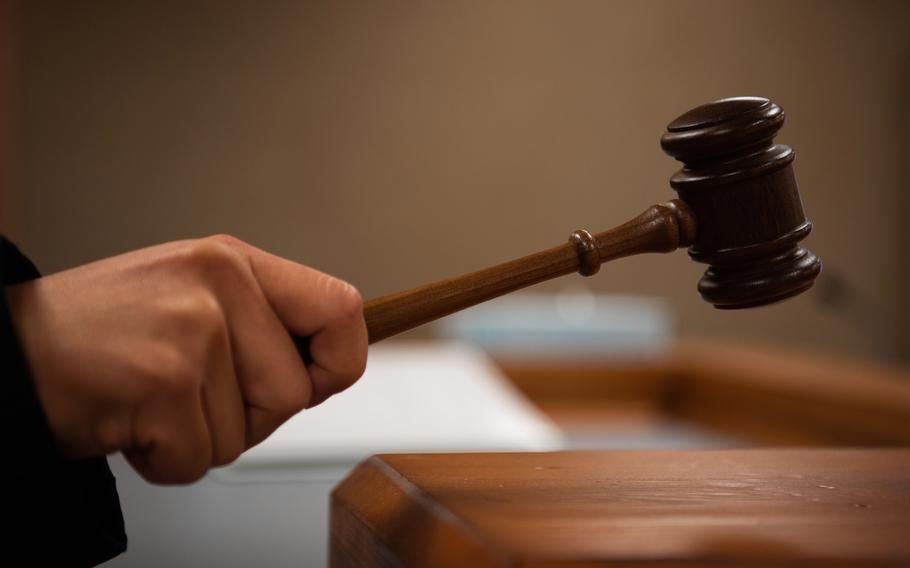
Navy Lt. j.g. Willie Jeter, who was dismissed and sentenced to 20 years in prison for sexual assault and other crimes, recently won his case before the military’s highest appeals court. The justices found that jury selection in Jeter's court-martial may have been tainted by racial bias. (U.S. Air Force)
A former Navy officer who argued that minorities were excluded purposefully from the jury that convicted him of sexual assault won his appeal before the U.S. military’s top court.
An all-white jury of five men convicted Lt. j.g. Willie Jeter, who is Black, in 2017 of sexually assaulting two women on separate occasions.
He also was found guilty of extortion, burglary and other charges at a court-martial at Norfolk Naval Station, Va. Jeter was sentenced to 20 years in prison and dismissed from the service.
In his appeal, Jeter contended that his rights had been violated when the pool of prospective jury candidates was stacked with white men.
The U.S. Court of Appeals for the Armed Forces on Sept. 25 reversed the Navy-Marine Corps appellate court’s 2021 decision upholding Jeter’s conviction and sentence.
In a 4-1 opinion, the justices cited the 1986 U.S. Supreme Court decision Batson v. Kentucky, which held that jurors cannot be excluded based on race.
“We must carefully examine member selection practices to protect the military accused from procedures that may operate to exclude persons on racial grounds, regardless of the race of the accused,” they said.
Jeter, who was 27 at the time of his trial, was convicted of sexual assault and extortion for a 2014 incident on board the Norfolk-based USS Truxtun.
After discovering a female enlisted subordinate having sex with another sailor in the destroyer’s electrical switchboard room, Jeter abused his authority by telling her he wouldn’t report the incident if she had sex with him as well, prosecutors said.
He also was found guilty of sexually assaulting a student at Hampton University in Virginia in 2016. The woman testified that she woke up in her apartment to find Jeter, a stranger to her, in her bedroom.
At Jeter’s trial, the defense challenged the makeup of the jury, arguing that a lack of minority members demonstrated a “systematic exclusion of members based on race and gender,” according to court documents.
The defense noted that two Black jurors in the original pool of candidates were excused. Of the nine remaining, seven were given a questionnaire asking them to identify their race and sex. All seven identified as white males, according to court documents.
The judge at Jeter’s original trial found no evidence of a “purposeful exclusion” when the matter was brought up by the defense, court records stated.
During the lengthy appeals process, the convening authority, staff judge advocate and acting convening authority in the case told the court that they didn’t recall discussing the race of the accused and prospective jurors, and that they could remember little about the selection process, according to court documents.
The lower appeals court also found that there was “neither purposeful nor systematic exclusion” of Black jurors.
The high court judges did not fault the officers for not remembering the selection process during the 2021 appeal, given that the trial was so long ago.
But they also ruled that the government hadn’t refuted the defense’s claim that race was a factor in jury selection.
“The use of a race-conscious component in the selection process combined with the absence of any evidence in the record addressing how and by whom selection was made from this pool of members leaves us to seriously question whether the impermissible criterion of race might have found its way into the selection process,” the majority opinion said.
The case was returned to the judge advocate general of the Navy, and a rehearing is authorized, according to the ruling. The Navy hasn’t publicly announced the next steps in the case.